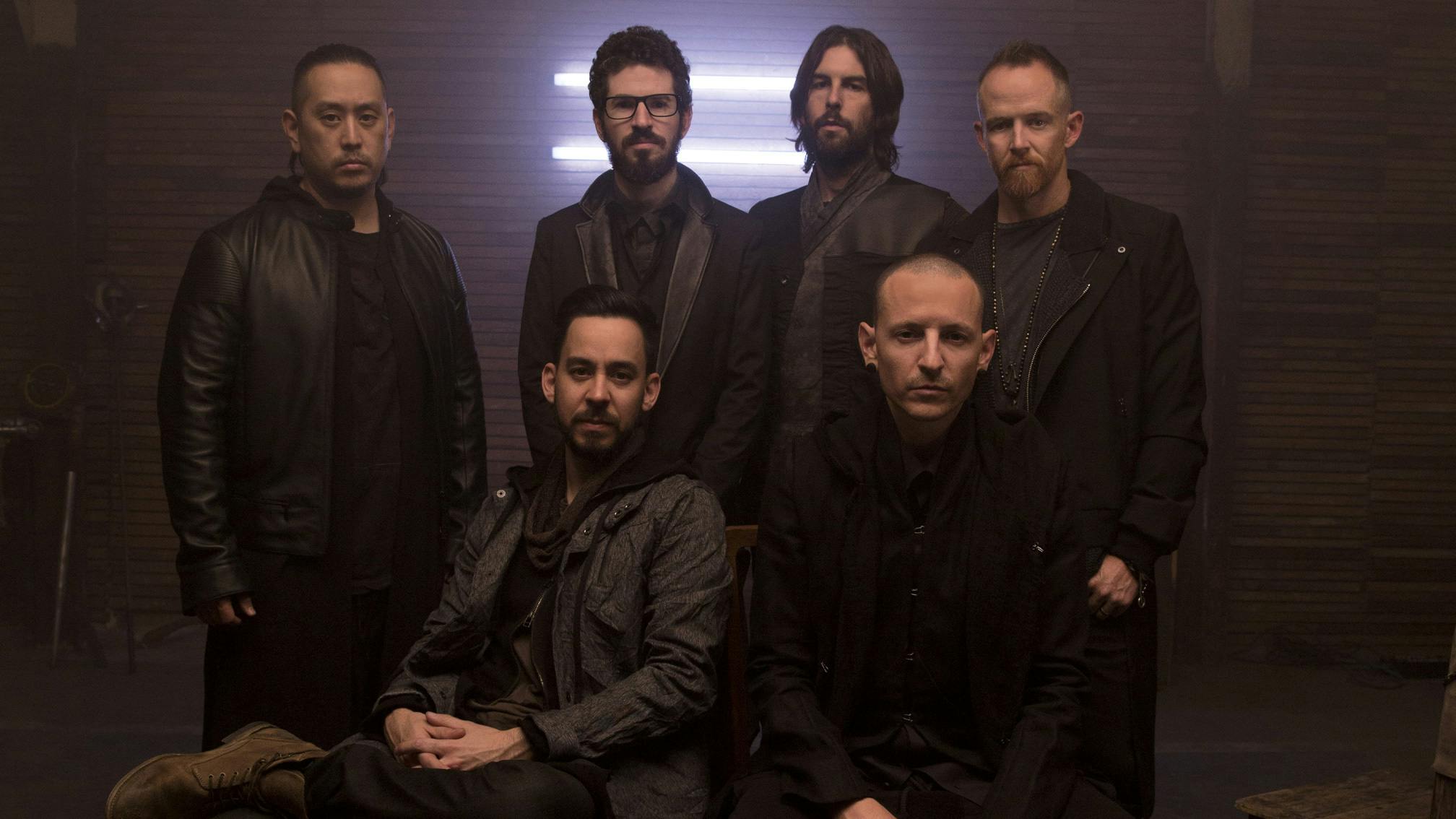Chester would join the recording of The Hunting Party late on, but as excuses go, he had a good one. In 2013, Stone Temple Pilots had called upon his services, a dream come true for the singer who’d long considered the grunge favourites heroes. In May of that year, Chester would join the band’s three remaining members – brothers Dean and Robert DeLeo, and drummer Eric Kretz – for their first performances together, introducing a new song called Out Of Time. This incarnation would ultimately only release one record together, the EP High Rise, released in October in 2013.
“Dude, this is fucking awesome!” was Chester’s response to the new stuff Mike played him when he finally joined his bandmates at Larrabee Studios in North Hollywood, having finished touring duties with STP. He’d expected to hear dance-y material with a dark edge, but instead was presented with something that sounded like death metal by comparison. “I was really surprised by how heavy it was.”
Given the obvious joy Linkin Park were getting from the louder, punchier material as it was coming together, it was natural to wonder why it had taken the band so long to get back here. It wasn’t a question of reluctance, however. According to Mike, it was more one of fear.
“Before, we were kind of afraid to go all in,” he revealed. “Seven or eight years ago, we would have been scared to go ahead with a record like this. The time’s right for it now, and we feel really great about releasing it.”
As well as bringing the sounds they’d grown up with to the fore, the making of The Hunting Party reaffirmed the duality at the heart of Linkin Park, the relationship between Chester and Mike. Chester, who considered the band’s dynamic as “the most functional relationship [he’d] ever been in” was forever grateful for his friend’s firm, guiding hand when it came to holding down the fort, even when he’d been on the road with STP. He also considered Mike the man responsible for Linkin Park’s sustained momentum, and for having put out as many albums as they had.
“I know that by allowing Mike to be wherever he wants to be, when he wants to be there, he’s going to be reaching his maximum potential,” he praised. “When people ask me, ‘What’s the secret to your success?’ I say, ‘Mike Shinoda.’ You take him away, it doesn’t exist. I can’t say that for myself.”
Mike, who disagreed with Chester’s self-deprecating assessment, meanwhile appreciated the way in which his bandmate had allowed the genuine pain still plaguing him to be mined for the purposes of the art they made together.
“That is one of the most important things for our band to have,” said Mike. “When we write together, I’m trying to tap into that, as much as he’ll let me.”
“I think that as long as we’re doing something together it’ll always be really cool,” added Chester, turning his attention to the band as a whole. “There’s something special about the six of us coming together, and if you take away any one of these guys out of the band, of course it’s not going to be the same.”
